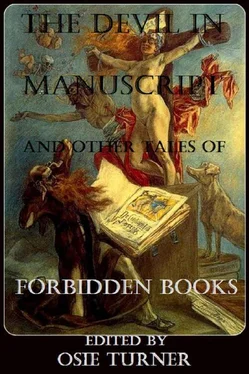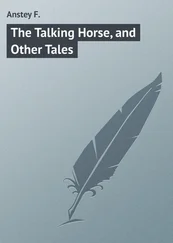When I at last came out of the land of delirium, I was as weak as a new-born child. The sun was streaming through the window, casting its javelins of light on every side. One of them lay across the bed like a bar of molten gold. It occurred to me that I would like to feel it’s reassuring warmth, but I had scarcely enough strength to reach out my hand.
Suddenly Martin’s voice broke the silence. “How do you feel now?” he asked.
I started at these words which had echoed through my dreams. I had to steady myself before I answered feebly: “Much better, thank you.”
During the next few days I improved rapidly. Martin was a competent nurse. Sitting beside my bed, he whiled away the tedious hours by his remarkable knack of story-telling. It was not the stories themselves which held me—he would often repeat those I had already heard—but his truly remarkable wording which made them flow as smoothly as a river of oil and was as pleasing to the ear as music.
Sometimes I would speak of Paul, and then Martin would be the eager listener. I received several letters from home. One of these worried me. It was from my father and ran as follows:
“Dear Charles: Paul is drinking again. I can do nothing with him. The slightest reprimand drives him into a frenzy of remorse and despondency. At such, times he is quite capable of taking his own life. I wish you were home. Perhaps you could manage him. Affectionately, Dad.”
This letter came while I was still very weak and I asked Martin to read it aloud to me. I saw his face darken as he perused it. When he had finished, he sat in gloomy silence. At last I heard him mutter: “It’s in his blood. I could handle him, but another might take the wrong way. It would be fatal to…”
“You must think a great deal of Paul,” I broke in.
“A great deal?” he cried vehemently. “Why, Paul means more to me than my art! Do you think I would have wasted my time pulling you out of the valley of death if you weren’t his brother?”
He rose without waiting to hear my response and hurried from the room. Although it may seem surprising, I was relieved by what he had just said. I had never liked the fellow; and to be weighed down under a load of obligations to one heartily disliked, is a very unpleasant experience. If he had nursed me back to health merely on account of his friendship for Paul, surely I did not owe him as much as if he had been actuated solely out of regard for me.
Soon I was strong enough to leave my bed and sit up for an hour or so each day. For three weeks I had been living on a diet of milk and broth, but now the doctor allowed me solid foods. Ah, the joy of eating when one is recovering from typhoid! It repays one for all those earlier sufferings.
One evening as I was waiting impatiently for supper to be served, I heard Martin’s bedroom door open. A moment later he entered, carrying a suitcase. A mutual coldness had sprung up between us, but this unusual sight made me forget everything.
“Why, where are you going?” I cried in astonishment.
“Home,” he answered, placing the suitcase on the floor.
“Not to America, surely?”
“Where else?”
“But your art? How about your painting?”
“Oh, I’m giving that up,” he said in a matter of fact voice.
“Giving it up!” I cried. “After what you’ve already done! Why, you will be recognized by the world in another year or so! You must be mad!”
“Do you think so?”
“I know so!” I answered with some heat. “What else could you turn your hand to with the same success? Art, such as yours, springs from the soul. By renouncing it, you would be tearing out the best in you.”
“I will have to do that in any case to follow the career which I have planned for myself.”
“What is this precious career?”
“Literature,” he answered calmly. “I took up drawing merely to illustrate my stories. No other man could do them justice.”
“So you are one of those numerous young men who think they can write,” I said in a tone which brought a flush to his sallow cheeks. “What reason have you to suppose so?”
“You must acknowledge that I can tell a story.”
“Yes, but your stories are not original. Have you a keen imagination?”
“Not a vestige of one,” he said simply.
“Then how can you expect to become a successful writer? A literary man without any imagination ia doomed to failure from the start.”
“You are wrong—entirely wrong!”
“How so?” I demanded.
“Because a writer does not necessarily need a creative imagination,” he said a trifle wearily. “I, myself, have what is far better—a concise memory and the ability to write in the most perfect wording exactly what I see and feel. There is enough going on in the world at this moment to serve as the substance for a million stories. Of course, one has to branch away from the beaten path to find such material. But that is exactly what I am going to do.”
“But you haven’t mingled enough with other men,” I hastened to add. “You know little or nothing of human nature. A man to be a successful writer”—I was quoting Professor Brent—“must be a student and admirer of his fellow men. Without companionship, a writer misses the human touch.”
Martin’s lips curled up at the corners in one of his irritating smiles. “My dear Smithers,” he said in a tone which he might have used in speaking to a tiresome child, “you’re entirely at fault in such a surmise. Surely an onlooker, a mere spectator with no party feeling of any kind, can witness the battle of life with better results than can the actual combatants. You say that a writer should study and admire his fellowmen. That is impossible. If we admire a man, we cannot study him. We are prematurely blinded to all but his virtues. By taking that attitude toward mankind at large, we lose the larger half of faults and follies which go into the makeup of the average mortal.”
“I don’t agree with you,” I said coldly. “But even if you were right, you’d be a fool to throw away a certainty for an obscure possibility. Have you stopped to think that the successful writer of today has to cater to the mob as you call them?”
“But I won’t have to do that,” he cried with flashing eyes. “I intend devoting my time exclusively to horror tales. Have you ever witnessed an accident on the street? Well, in a moment, hundreds collect where there was but one. They are drawn thither by that morbid streak in humanity, that overmastering desire to feast one’s eyes on gruesome details. Such a sensation will be gratified in my stories. Men and women will buy them to experience the delightful tremor of tragedy beside their own firesides. Who would not walk many blocks to see a murder committed? Nearly all of us would go if our own precious lives were not endangered. I tell you the public will snatch up my work because it will give them the exact sensation of those who stand about on tiptoe to catch a glimpse of death.”
In spite of myself, his words stirred my imagination. Was it possible that literature could be made as vivid as this? He had succeeded in portraying horror most realistically with the pigments of the painter, but could he create such an atmosphere with cold words alone? No, it was impossible—even laughably absurd.
“You cannot possibly create such an acute feeling in the minds of your readers,” I said at length. “No man could do it.”
“What no man can do, I can do,” Martin replied with insufferable egotism. “I will surely succeed as a writer—as surely as you will fail as a painter.”
“Really!” I cried with a sneer. “Emile Verone thinks rather highly of my work.”
“Your work is promising now because you paint as your eye tells you. But later, when you get out into the world, it will be different.”
Читать дальше












